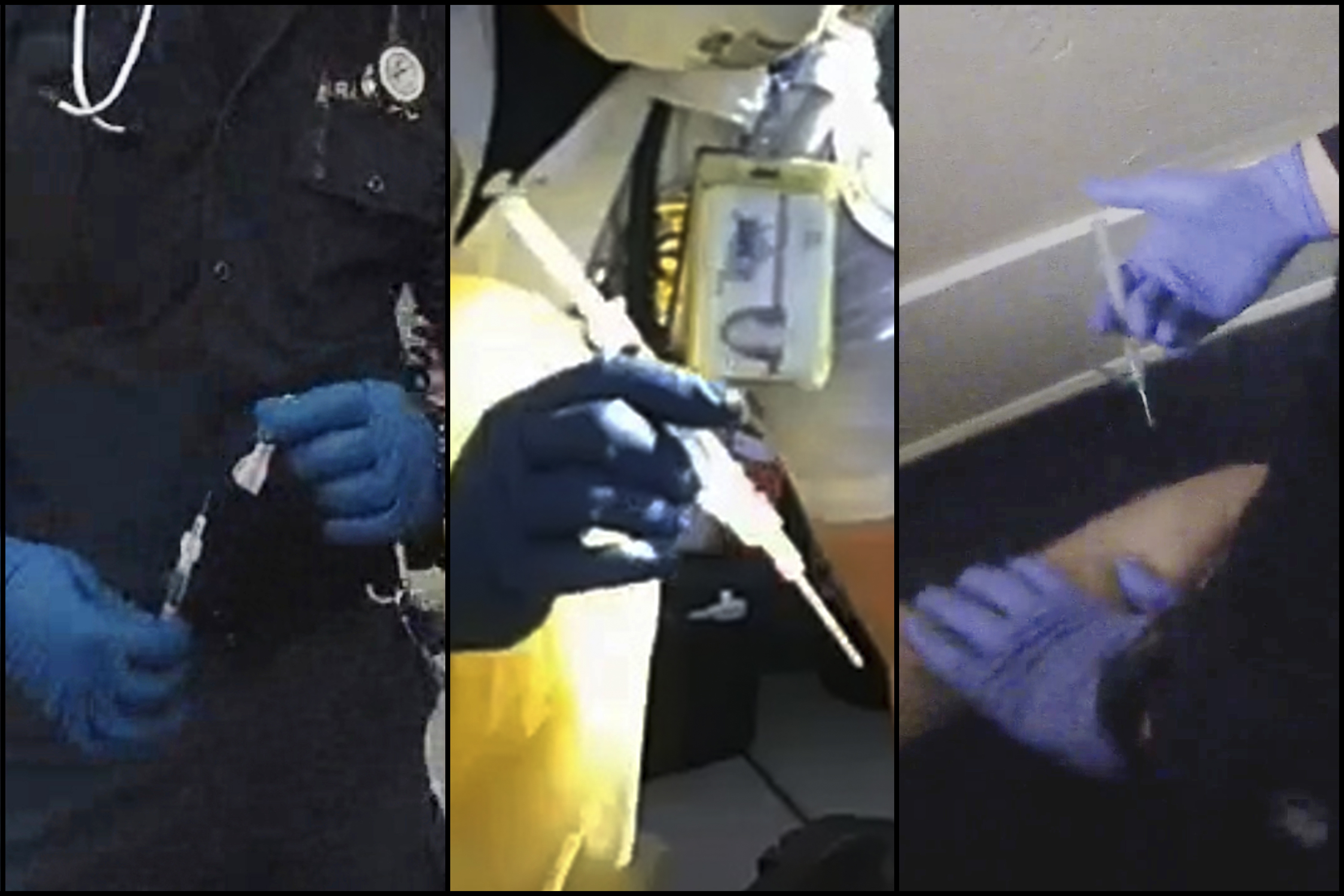Under pressure to do more to help hurricane-ravaged Puerto Rico, President Donald Trump has waived for 10 days a little-known federal law that prohibits foreign-flagged ships from shuttling goods between U.S. ports.
Trump authorized the Jones Act to be waived for the island at the request of Puerto Rico's governor, White House press secretary Sarah Huckabee Sanders said on Twitter Thursday.
"It will go into effect immediately," she tweeted.
Two Republican senators have introduced legislation to permanently exempt Puerto Rico from the Jones Act.
Sens. Sen. John McCain of Arizona and Mike Lee of Utah said the waiver will help, but will not do enough to help Puerto Rico recover and rebuild from Hurricane Maria.
Puerto Rico's governor, along with Republicans and Democrats in Washington, had pushed Trump to waive the Jones Act, saying it could help get desperately needed supplies delivered to the island more quickly and at less cost.
The 97-year-old law was passed after World War I to protect the U.S. shipbuilding industry, requires that domestic shipping must be carried out by U.S.-owned, U.S.-made ships staffed by American crews.
U.S. & World
Critics of the act say it is limiting the delivery of potential aid to Puerto Rico by foreign vessels and will drive up prices for people on the island. Multiple studies have shown that the act has cost Puerto Rico’s economy billions of dollars. Eight members of Congress wrote a letter to the Department of Homeland Security urging the administration to waive the law.
Acting Homeland Security Secretary Elaine Duke waived the law earlier this month to help ease fuel shortages in the Southeast following hurricanes Harvey and Irma. That order included Puerto Rico, but expired last week shortly after Hurricane Maria struck.
Puerto Rico Gov. Ricardo Rossello, said Wednesday that he expected the Jones Act to be waived. He told CNN that Irma was much less devastating than what Puerto Rico is now facing.
Rossello said at the time his administration has talked to members of Congress from both parties.
"And they all support at least a temporary waiver of the Jones Act so that not only from U.S. maritime ships but from anybody that can bring help," he said. "And that is critical.”
He thanked the president on Twitter after the act was waived.
Duke said in a statement Wednesday that the 10-day waiver comes after the defense secretary determined that is "in the interest of national defense."
"It is intended to ensure we have enough fuel and commodities to support lifesaving efforts, respond to the storm, and restore critical services and critical infrastructure operations in the wake of these devastating storms,” she said. Earlier this week, her agency downplayed the need for such action.
The Trump administration had said a waiver was not needed for Hurricane Maria because there are enough U.S. flagged ships available to ferry goods to Puerto Rico. Officials at DHS, speaking on condition of anonymity because they were not authorized to discuss the issue by name, said the bottleneck is with unloading cargo at the island's damaged ports and getting the supplies inland. They made the remarks in a background conference call with reporters to justify the administration's earlier decision.
But asked about that decision as he left the White House to pitch his tax plan at an event in Indiana on Wednesday, Trump suggested he could be open to changing course. He said some U.S. shipping executives opposed a temporary waiver.
"Well, we're thinking about that," the president said. "But we have a lot of shippers and a lot of people and a lot of people who work in the shipping industry that don't want the Jones Act lifted. And we have a lot of ships out there right now."
Even before the storm hit, shipping household and commercial goods to Puerto Rico cost roughly double what it did to nearby Jamaica and the Dominican Republic, where foreign vessels are free to dock. The U.S. Virgin Islands were granted a permanent legal waiver from the Jones Act by Congress, but not Puerto Rico.
"These emergency waivers have been valuable to speed up recovery efforts in the impacted regions," Sen. McCain said Tuesday. "It is unacceptable to force the people of Puerto Rico to pay at least twice as much for food, clean drinking water, supplies and infrastructure due to Jones Act requirements as they work to recover from this disaster."
McCain on Thursday applauded the new decision.
"Now Congress must repeal this law to aid long-term recovery," he tweeted.
Rep. Nydia Velázquez, a New York Democrat who was born in Puerto Rico, had also urged Trump to approve a waiver.
"Puerto Ricans are without food, clean water and electricity," she said. "We must use every tool at our disposal to channel assistance to the island."
The American Maritime Partnership, which represents more than 400 U.S shipping companies, said a Jones Act waiver would hinder relief efforts.
Waiving restrictions on foreign vessels that carry cargo to Puerto Rico "could overwhelm the system, creating unnecessary backlogs and causing confusion on the distribution of critical supplies throughout the island,'" said Thomas Allegretti, the group's chairman.
Domestic shipping companies moved approximately 9,500 containers of goods to Puerto Rico in the wake of Hurricane Maria, including a large container ship that arrived Sunday with more than 35 million pounds of cargo, the group said.
"The largest bottleneck is not getting goods to the island, but delivering goods once they arrive," Allegretti said, noting that goods shipped to the island are being held in port because of blocked roads and other disruptions.
Domestic maritime containerships can deliver cargoes from the U.S. mainland to Puerto Rico in three days, the partnership said in a statement.
Trump was scheduled to visit Puerto Rico on Tuesday, as his administration began dispatching additional ships and military personnel to the stricken island.
Large sections of the territory remained without adequate food, water and fuel one week after the Category 4 storm hit. Communications were spotty and roads were clogged with debris. Officials said electrical power may not be fully restored for more than a month.
"Puerto Rico's a very difficult situation. I mean, that place was just destroyed," Trump said. "That's not a question of gee, let's dry up the water, or let's do this or that. I mean, that place was flattened. That is a really tough situation. I feel so badly for those people."
Speaking Tuesday at a joint press conference of the minority congressional caucuses, Rep. Darren Soto said Trump is grossly underestimating the devastation in Puerto Rico. The Florida Democrat also expressed concern that a planned trip to the island to survey the damage ahead of an expected vote on FEMA aid has been delayed because of Trump's visit scheduled for Tuesday.
"We had a trip planned for Friday. Eventually that became Sunday. Now we have been told there are no federal assets available until after the president's trip," Soto said. "Members of Congress need to see firsthand what the devastation is like."
The Defense Department responded Wednesday that it would be unable to accommodate lawmakers on military planes for now. "Due to the urgency of the humanitarian situation, our focus of operations remains on life-saving and life-sustaining support, and we are dedicating our resources to relief operations at this time," spokeswoman Laura Seal said.



